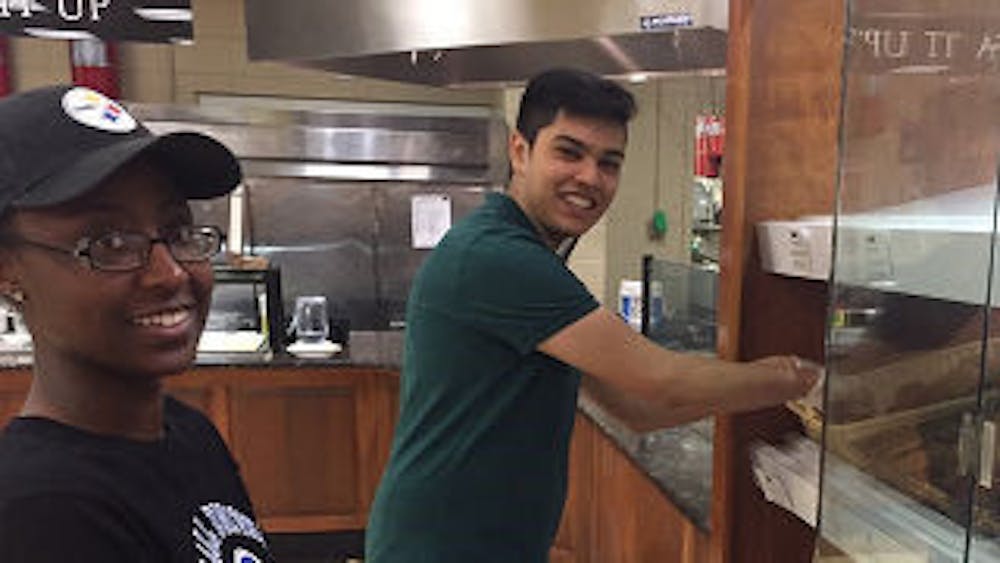Since the Food Network Recovery Network’s Seton Hall chapter was established in Feb. 2017, the organization became New Jersey’s top chapter in food donations. As of the most recent update, the organization has collected 1,522 pounds of food, according to the Food Recovery Network’s website.
Food Recovery Network President, sophomore and marketing and economics major, Divina Tanamal, has been a member of the chapter ever since the chapter’s outset.
[caption id="attachment_21301" align="aligncenter" width="320"] Seton Hall started their food recovery chapter in Feb. 2017
Seton Hall started their food recovery chapter in Feb. 2017
Photo via Twitter/SetonHall[/caption]
She was named the organization’s president at the beginning of last semester by the chapter’s founder, Andrew Aguilera, a senior and business administration major. Tanamal credits her editorial board for the chapter’s efficient function.
“Our operations are pretty simple: On Monday and Wednesday nights, our volunteers go to the cafeteria to weigh and record the surplus food from GDS. Then, on Tuesday and Thursday afternoons, we deliver the food to our partner agencies which are local soup kitchens in Newark and East Orange,” Tanamal wrote in an email.
Additionally, Tanamal described her witness of Newark’s poverty and the positive influence the Food Recovery Network, a national student organization, has on the area.
“I’m a commuter and having to drive through Newark every morning, I witnessed the long lines that people waited in outside soup kitchens,” Tanamal said. “There’s no better feeling than seeing the faces of the people we’re helping out brighten up when we deliver the food.”
In the fall of 2016, Aguilera asked to meet with the University and GDS about where the University put the excess food. Aguilera was informed that after 24 hours the food was discarded, according to Gourmet Dining Chief Executive Officer, Alfred Frungillo.
“GDS and the University felt that this food recovery group was a proper way of using the food surplus for an important cause,” shared Frungillo via email. “We also enjoy working with this dedicated group that gives up their time four days a week to help others.”
After tasked with a junior mentorship program through the Gerald P. Buccino ’63 Center for Leadership Development, Aguilera wanted to solve a prevalent issue. According to Aguilera, he researched any schools that combated the issue, found the Food Recovery Network and emulated respective chapters.
Following a few months of meeting with University administrators, he successfully established Seton Hall’s chapter. The organization’s work is much needed in the University’s surrounding community.
“Food waste is a huge issue, especially in the United States,” Aguilera said.
“With surrounding communities who have hungry people, it was a no-brainer that putting together FRN would help so many people in need.”
Also, a member since the chapter’s founding, Rishi Shah, a sophomore, finance and economics major, admires the chapter’s dedication and enjoys the experience of collaborating with organized peers.
“I continue to participate in FRN because I want to leave a long-lasting organization that will continue to grow and continue to help our local community,” wrote Shah in an email.
Thomas Schwartz can be reached at thomas.schwartz@student.shu.edu.

Comments




